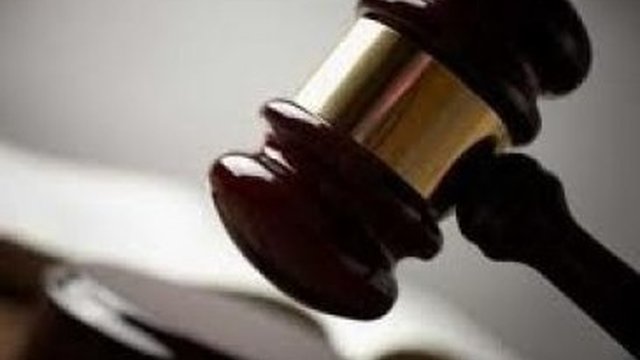EU court overturns sanctions extended by EU for Yanukovych, his son in 2016-2017, for some of his associates in 2018

The court of the European Union has lifted the EU sanctions extended for former President of Ukraine Viktor Yanukovych and his son Oleksandr in 2016-2017, and for a number of his associates - extended in 2018.
The relevant decision was taken by the EU Court on Thursday after considering the complaints of former high-ranking officials, including Viktor Yanukovych, his son Oleksandr, former Minister of Revenue and Duties of Ukraine Oleksandr Klymenko, former Prime Minister Serhiy Arbuzov, former Prosecutor General Viktor Pshonka and his son Artem Pshonka and former head of the presidential administration Andriy Kliuyev.
A press release, issued following the consideration of their complaints, says that these persons were first included in 2014 in the list of persons subject to freezing of funds, on the grounds that they were subject to criminal prosecution in Ukraine for investigating crimes connected with the embezzlement of Ukrainian state funds and their illegal transfer outside of Ukraine.
"The decision concerning the freezing of funds against those persons was repeatedly extended, for one-year periods, on the new ground that they were subject to criminal proceedings by the Ukrainian authorities for the misappropriation of public funds or assets. They brought actions before the General Court contesting the acts extending the freezing of their funds in 2016 and 2017, 1 in so far as Viktor Yanukovych and one of his sons are concerned, and in 2018, in so far as the other persons are concerned, 2 on the ground, inter alia, that the Council had failed to comply with the listing criteria. By today's judgments, the General Court upholds the actions brought by the Ukrainians by annulling the restrictive measures taken against them for those periods," the press release reads.
Justifying this decision, the EU Court noted that "applying the case-law principles arising from the Court of Justice's judgment in Azarov v Council,3 recalls that the EU judicature must review the lawfulness of all EU acts in the light of fundamental rights."
"In that connection, although the Council can base the adoption or maintenance of restrictive measures on a decision of a third State, it must itself verify that, in particular, the rights of the defense and the right to effective judicial protection were complied with at the time of the adoption of the decision. The General Court finds that the statement of reasons for the Council's acts extending the restrictive measures does not include a single reference to the fact that the Council verified compliance with such rights," the Court considers.
In addition, according to the Court, "none of the information contained in the letters from the Ukrainian authorities, on which the Council based its decision to maintain the restrictive measures at issue, makes it possible to consider that the Council had sufficient information to verify that those rights had been complied with."
"Furthermore, it was under an obligation to carry out that verification irrespective of any evidence adduced by the Ukrainians concerned by the freezing of funds," the press release reads.
In addition, the Court doubted that the decision of the Ukrainian authorities to initiate and conduct criminal cases, on the basis of which it was decided to apply restrictive measures, was taken "in accordance with the rights of the defense and the right to effective judicial protection."
"The General Court concludes that none of the information before it establishes that the Council verified that the Ukrainian judicial authorities complied with the rights in question before extending the restrictive measures at issue. It therefore annuls the Council’s acts extending the restrictive measures for the periods from 6 March 2016 to 6 March 2017 and from 6 March 2017 to 6 March 2018, with regard to Viktor Yanukovych and one of his sons,4 and from 6 March 2018 to 6 March 2019, with regard to the other Ukrainians concerned," the General Court said.









